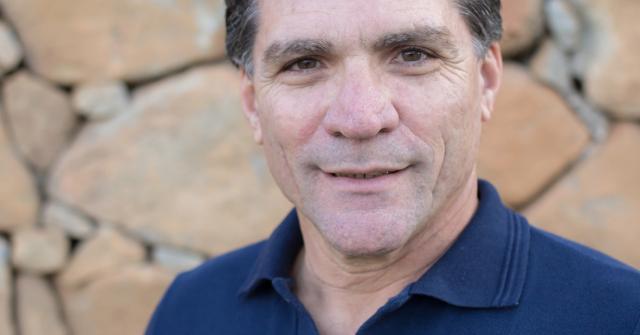
Global Mission: Still an Urgent Task?
Time is a popular topic within the Lausanne Movement. Celebrating our 40th anniversary in 2014 sparked many conversations and reflections about time and purpose. Our leadership spent the year thanking God for his steadfast love and seeking his wisdom to lead the Movement in the future. Out of this reflection, some principles on leadership have emerged which are (not surprisingly) simple and unoriginal, yet profoundly powerful.
Every leader should work with urgency, especially Christians. For some non-Christians, there is an urgency that reflects the belief that “this world and this life is all there is.” And related to this is the urgent, or desperate, seeking of an enduring personal glory. For Christians, there is the urgency that reflects the conviction that our lives here on earth, though short, have eternal consequence. And related to this is the passionate yearning to live a life that redounds to the eternal glory of God.
God has created time and has dictated that only a certain amount of time is allotted to everything from lifespans to civilizations to time itself.
In view of this, here are four principles for living when “time is short.”
Do your unique “something”
In 1974, the existence and need for global mission was very much in question. Liberal theologians began to not only reject Christ as the only source of salvation; they rejected the very need of a Savior. In the process, consequently, the gospel mission of the church was abandoned. Even many evangelicals suggested that global mission was finished. There were believers in every political nation-state on the planet, they argued. In the midst of the confusion of those days, the Lord began to call out the Lausanne Movement.
At the first Lausanne Congress, the global church came to understand that the task was not simply to see a convert in every nation-state, but a growing kingdom representation in every people group on the planet. Jesus said, “Go and make disciples of all nations (ethne),” with ethne meaning ethnicities. Maturing, reproducing, gathered followers (i.e., the church) among all people groups—that is the task.
Knowing the task is one thing. Doing “something” about it is another. Billy Graham, who called together the first Lausanne Congress, knew that it would take the global church working together to see the job done.
There were certainly many mission agencies, denominations, parachurch ministries, and others working around the world to bring the gospel to the nations and to make disciples. But there was no global network in existence that could connect the pieces of God’s global body for the completion of God’s global mission. The unique role that God had for Lausanne was to be a catalyst for bringing together global evangelical leaders to work toward the completion of the Great Commission. Or as we say it today, the Lausanne Movement connects influencers and ideas for global mission.
You have one life. And it can be spent in numerous ways, but it is unlike any other and God has sovereignly set the times and boundaries of its existence. Why would you live as if he has no unique plan for it?
Do the most important thing(s)
When I accepted the role as the new CEO of the Lausanne Movement, I did so because I wanted the world to look different in ten years. We must be gripped with a passion to see a vision for what could be and a commitment to make it so.
Rev. Gottfried Osei-Mensah, born in Ghana, can only be described as a missionary statesman. After a promising start as a businessman with Mobil Oil, the Lord led him into leadership positions with some of the most influential ministries on the planet. In his book Wanted: Servant Leaders, Osei-Mensah says that one kind of leader that is desperately needed is the “leader with vision”:
“We need people who are in touch with God, and who can share the mind of God with their fellows and motivate them to action. It takes only a few like that in each generation.”
Throughout the years, the Lord has graciously allowed the Lausanne Movement to identify many of these visionary leaders including Gottfried himself. It was in 1974 at the first Lausanne Congress that the ideas of Unreached People Groups and Holistic Mission were first articulated by leaders like Ralph Winter, Rene Padilla, and Samuel Escobar. Over the following 40 years, critical mission issues that today are considered mainstream were first articulated or given traction through the efforts of visionary leaders involved in the Lausanne Movement—issues like reaching cities, working with diaspora communities and oral learners, focusing mission efforts on the 10/40 Window, and business as mission.
Over this anniversary year, Lausanne’s leadership wrestled with the question, “What would the world look like if we were to fulfill our mission?” We’ve sharpened our answer to four points that capture what we consider to be our “most important things”:
- The Gospel for Every Person
- An Evangelical Church for Every People Group
- Christ-like Leaders for Every Church/Nation
- Kingdom Impact in Every Sphere of Society
The understanding of global mission was radically redefined in 1974 at the first Lausanne Congress and the world has been significantly changed in the proceeding 40 years. What about your life? How might the world look different in ten years because of your urgent pursuit of this most important vision?
Do it right
In 2010, in Cape Town, South Africa, Lausanne convened the Third Lausanne Congress on World Evangelization. It has been called the most representative gathering of Christian leaders in the 2,000-year history of the Christian movement. A defining moment was when Dr. Chris Wright spoke on the topic of Confronting Idols. The three idols he highlighted were power, success, and greed. These are global idols worshipped by the world and unfortunately, all too often, by the church as well.
These idols are confronted by the spiritual principles of Humility, Integrity, and Simplicity. I have heard again and again from those who were at Cape Town of how the Lord used the challenge to be HIS people to radically change the direction of lives and ministries.
The Cape Town Commitment says:
"When there is no distinction in conduct between Christians and non-Christians—for example in the practice of corruption and greed, or sexual promiscuity, or rate of divorce, or relapse to pre-Christian religious practice, or attitudes towards people of other races, or consumerist lifestyles, or social prejudice—then the world is right to wonder if our Christianity makes any difference at all."
Leadership marked by hunger for power, success, and greed is tragic. The biblical leader Joshua was a godly man. But those who followed him served idols and did not know God. We read in Judges 2:10-12 that when Joshua died, “there arose another generation after them who did not know the LORD or the work that he had done for Israel. And the people of Israel did what was evil in the sight of the LORD and served the Baals. And they abandoned the LORD” (ESV). What a tragedy! The whole nation turned away from God.
But that abandonment actually followed the failure to complete the task the Lord had given them (Judges 1:27-36). Israel lost their God-given vision, and in doing so, lost sight of God altogether. Has the truth of Proverbs 29:18 ever been clearer? “Where there is no prophetic vision, the people cast off restraint, but blessed is he who keeps the law” (ESV).
Our task (what God is calling us to do) and our character (who God is calling us to be) are linked because it is the same Lord who governs them all. And both our discussions about mission, vision, and values, and our character are serious affairs with eternal consequences.
From generation to generation
And it’s good to notice the generational aspect of Judges 1 and 2. When Joshua and his contemporaries died, a generation arose that did not know God or the work he had done. It is imperative that we have a vision for raising up the next generation of leaders. It’s often been through Lausanne’s support of younger, unknown leaders that has led to significant breakthroughs in global mission.
This year, we’ve determined to make raising up the next generation of global younger leaders an even greater priority. In 2016, just outside of Jakarta, Indonesia, Lausanne will host the third Lausanne Younger Leaders Gathering. The first, held in 1987, connected younger leaders such as Paul Borthwick, John Piper, Peter Kuzmic, Susan Perlman, and Ajith Fernando to the global church and helped propel them into their ministries. The second (2006) included many younger leaders still emerging into more significant leadership roles, such as Jason Mandryk, Grace Samson-Song, Jonathan Dodson, myself, and many others.
However, the third Younger Leaders Gathering will be significantly different from the previous two. A one-week experience, left by itself, is not going to accomplish what the global church needs; therefore, Lausanne has committed to launching the Younger Leaders Generation which is a 10-year, intentional, and ongoing investment into the lives of the 1,000 younger leaders who will attend the gathering as well as thousands of other younger leaders who will follow along with the gathering from their homelands and then plug into regional opportunities to grow in their leadership.
Of all the undertakings the Lausanne Movement is involved in, the Younger Leaders Generation is the one that I believe will make the biggest eternal impact. These younger leaders will eventually be leading multi-national corporations, strategic and global ministries, denominations, and influential churches. They will help the church tackle some of the greatest global challenges to global mission not just for the next 4-5 years, but some perhaps for the next 40-50 years.
I love the story Gordon McDonald shares about Collis Huntington, a wealthy California businessman and investor in the transcontinental railroad.
When the construction began, he [Huntington] was invited to a ceremony to celebrate the driving of the first spike. He telegraphed this response: "If you want to jubilate over driving the first spike, go ahead and do it. I don't. Those mountains over there look too ugly. We may fail, and if we do, I want to have as few people know it as we can . . . Anybody can drive the first spike, but there are months of labor and unrest between the first and the last spike.
The task of global mission is still not complete. There are still “ugly mountains” that will be costly to cross, but it is the reason for which Jesus poured out his blood (Revelation 5:9) and the task that he has left for his people to complete (Matthew 28:18-20).
Every Christian has a role to play in that task. Everyone whether based in Nairobi, Nagoya, or New York can help accomplish it. Every profession, from business to Bible translation, has a God-appointed place in it. Including you.








